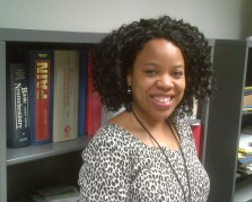Created and facilitated by Dr. Karine Fenelon, this integrated experience for UMass Biology and NSB faculty will explore 4 professional development topics aimed at helping educational leaders to establish and maintain a safe and welcoming climate and culture built on respect for diversity, empathy and equity in the classroom and the workplace. Faculty in UMass IDGPs and the Biology Department can register to participate in this workshop here.
Goals
The primary goal of this professional development workshop series is to provide skills to create the conditions that strengthen anti-racism awareness:
- Building and drawing upon intergroup awareness to practice active listening
- Encouraging faculty to speak out against microaggressions
- Promoting an anti-bias vision in the classroom and the workplace
- Creating classroom environments that reflect diversity, equity and justice
Workshop Structure
Consultants will train faculty in the context of a faculty development program aiming at addressing anti-racism issues. The consultants are trained in psychology, education and neuroscience, and will provide faculty with skills to identify and combat bias-based issues (including racial and gender issues) in the classroom and in their working environment. The topics will first be introduced during 15-20 minutes, followed by a 15 minutes group activity in breakout rooms. Then, groups will reconvene and a 15 minutes conclusion will be provided, followed by 10-15 minutes for questions and answers.
The workshops are designed to be interactive, with activities and discussions to be held in larger and smaller groups. The goal of these discussions is to provide concrete examples and time to practice the skills being presented.
Schedule & Speakers

Sept. 25 at 12 pm: Engaging in active listening and uncomfortable conversations
Dr. Vanessa Prosper
Licensed Child and Adolescent Psychologist trained at McGill University, Boston College, and Boston’s Children’s Hospital.
Dr. Prosper was an instructor in psychology at Harvard Medical School before starting her private practice in Boston. Currently, she is an Adjunct Professor at Boston College, Massachusetts School of Professional Psychology and Lesley University. Her area of expertise is Child, Adolescent and Adult mental health as depicted in her recent talks entitled: “Identifying, recognizing and dismantling racism” at Boston Arts Academy and “Helping young children cope with Covid-19.”

Oct. 23 at 12 pm: Disarming microaggressions in the classroom
Dr. Jonique Childs
Assistant Professor at UMass in the College of Education. Dept. of Student development. She received her Ph.D. in Counselor Education and Supervision from the University of Iowa.
Dr. Childs has completed a graduate minor in Multicultural Education & Cultural Competency and is a Nationally Certified Counselor (NCC). Dr. Childs has also completed dual Masters degrees M.S. Eds in school and clinical mental health counseling with an emphasis in career development. Dr. Childs has previous experiences as an at-risk school counselor, college career counselor and recruiter, and clinical mental health counselor on the national suicide hotline. She has served various individuals from different ethnic backgrounds to include adolescent, high school students, undergraduates, graduate students, and older adults. Her research areas of interest include career development and decision-making, multicultural education, cultural competency, social justice advocacy practices, leadership characteristics, and mental health awareness.

Nov. 20 at 12 pm: Racial and gender bias in the workplace
Dr. Karine Fenelon
Assistant Professor at UMass in the College of Natural Sciences. Dept of Biology. She was trained at McGill University, University of Sherbrooke. She obtained her PhD at University of Montreal and performed her postdoctoral research training at Columbia University.
As a Neuroscientist, Dr. Fenelon’s research program focuses on better understanding the neural elements and circuits underlying sensory information filtering involved in pre-attentive processing. Her laboratory uses animal models to provide a better understanding of the physiological dysfunction in patients suffering from sensory information filtering and identify potential targets for therapeutic interventions. Through the Teaching for Inclusiveness, Diversity, & Equity training offered to faculty at UMass, Dr. Fenelon developed skills to enhance students’ learning and academic success across cultural, social and learning differences by adopting a strength-based, inclusive and equitable approach to teaching and learning grounded in the value of diversity. This, along with her personal experience, allowed her to acquire expertise and contribute to the dialogue about and practice for inclusiveness, diversity, and equity not only in the classroom but also in the workplace.

Dec. 11 at 12 pm: Developing students’ sense of belonging across different cultural background
Dr. Marialuisa Di Stefano
Assistant Professor at UMass in the College of Education. Dept. Language, Literacy, & Culture. She was trained at the University of Messina and Washington State University. She obtained her PhD and performed her postdoctoral research training at Utah State University.
Dr. Di Stefano is a multilingual and multicultural educator, researcher, and advocate for historically marginalized groups in education. Her research interest lies in bridging perspectives between STEAM education, bilingual education, and transnational civic education, and how such intersections may lead to a more equitable education system. Dr. Di Stefano is the MABE (Multistate Association for Bilingual Education, Northeast), vice-president (2018-2020), and the AATI (American Association of Teachers of Italian) New England Co-Representative (2020-2022).
